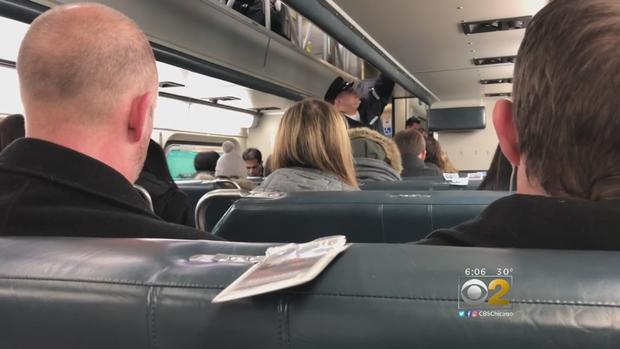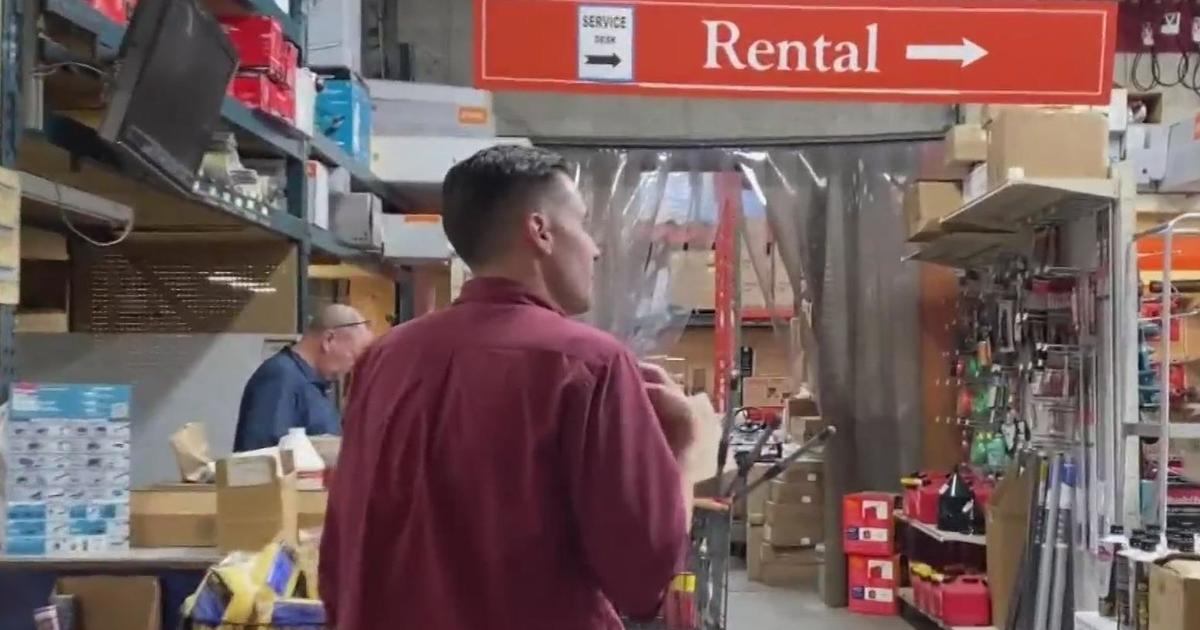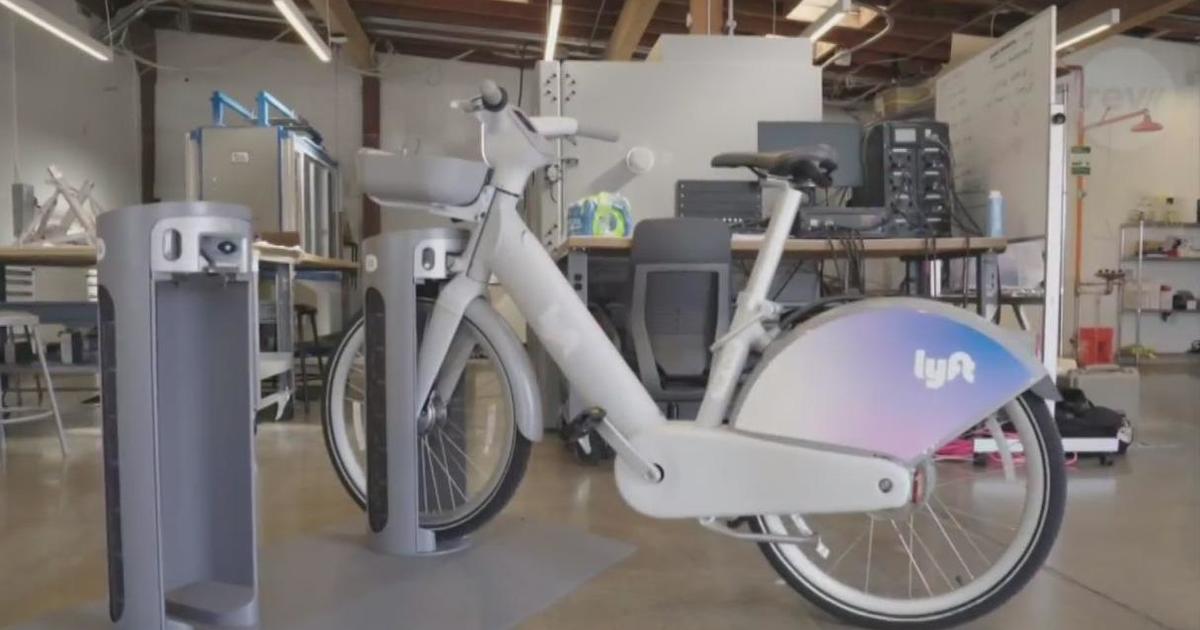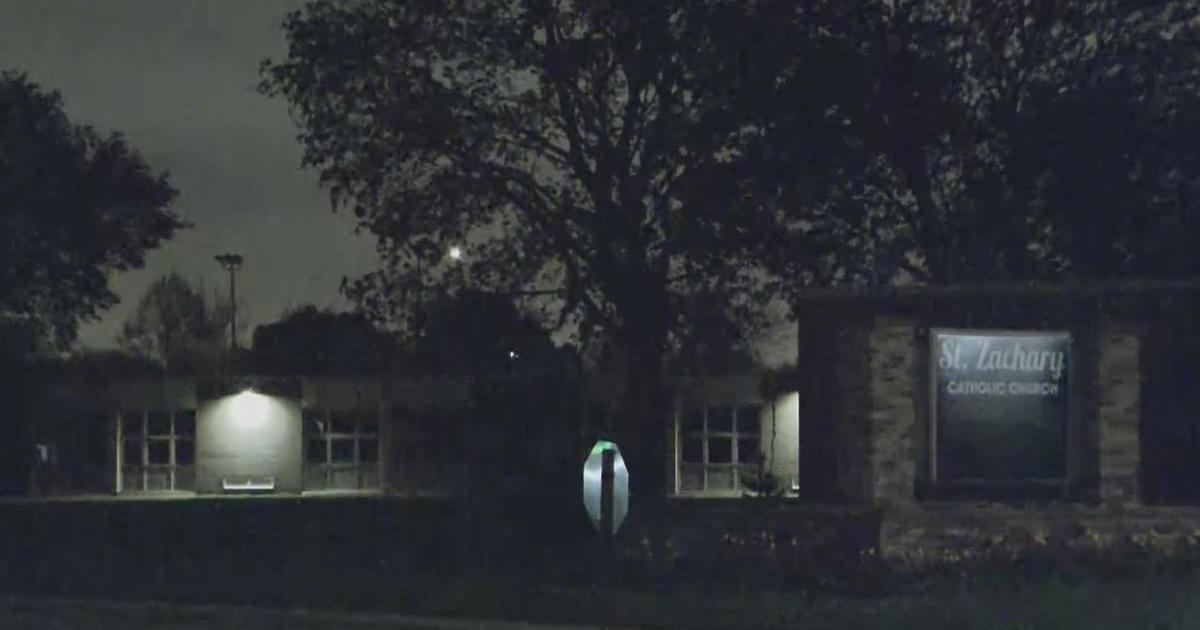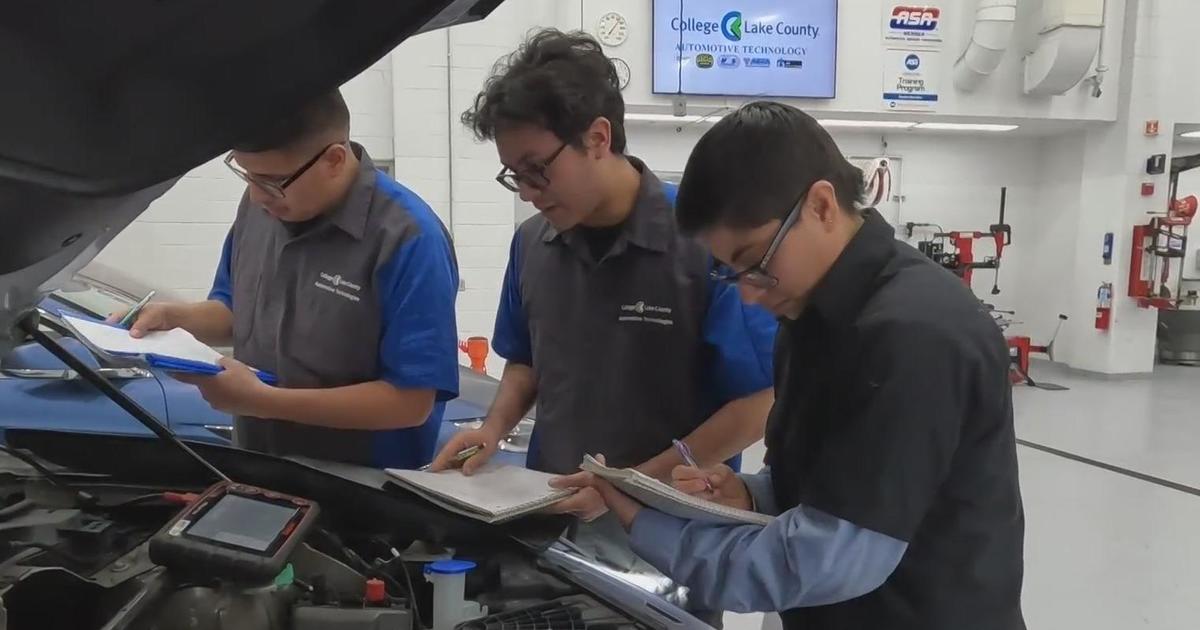Popularity Of Ventra App Paves Uncertain Future For Metra Ticketing Stations
CHICAGO (CBS)--Metra passed a new budget for 2019 on Friday without raising ticket fares, but officials detailed a need for $5 billion in investments over the next several years.
CBS 2 examined how Metra is spending tax dollars and found underutilized ticket agents could be costing millions of dollars.
Now that Metra riders can purchase tickets on the Ventra app, on the train or at train stations in downtown Chicago, the volume of tickets bought at suburban stations has started to dwindle.
With various ways to buy tickets, the suburban ticketing stations may not be as vital as they once were.
More than five million tickets--about a third of total tickets sold--were purchased on the app in the last year. About 4.2 million tickets were sold by ticketing agents--with the majority bought at downtown Chicago stations.
Suburban ticketing stations sold two million tickets last year, according to Metra, but it costs about $102,000 annually to staff each suburban station.
Since there are more than 240 ticketing stations across the Metra system--59 of them in the suburbs--that's a cost of $6 million in annual labor costs.
Some stations report such low ticket sales that the costs to staff those centers may not be worth the profits, according to reports CBS 2 obtained from Metra.
The north suburban Winnetka Metra station, for example, sold an average last year of 680 tickets per month, or 32 per day.
In all, revenue from that station totaled $261,000--compared to the average per-station operating cost for labor of $102,000, according to Metra's reports.
The Berwyn Metra station took in a meager $320,000 last year, reports show; while Lake Forest Metra station riders purchased $333,000 in tickets from the ticketing station.
The lowest ticket sales were reported at Franklin Park's train station, which took in $241,000 in ticket sales last year.
With the various options customers now have for buying tickets, Metra closed five ticketing stations during the past 14 months, records show, including the station at 103rd Street.
Those closings, of course, affect the people who staff those stations.
"Eliminating a ticket agent position almost always occurs as a result of attrition," said a Metra spokesperson.
Here's how Metra Director of Communications Michael Gillis answered CBS 2's questions regarding Metra ticket sales.
Based on the info in the FOIA, it appears that many of the stations are not very busy. Why not close many/all the stations and rely on vending machines or onboard ticket sales?
We of course have thought about that, and are looking into it again now as part of our research, but machines are expensive and we have limited capital dollars.
When we considered it before, we decided we did not want to go to the expense of buying vending machines (they cost about $30,000 to $50,000 each, plus regular maintenance, cash collection, etc.) until we see how the Ventra App is being adopted.
The app, in essence, turns our customers' smart phones into vending machines – and it only cost us a one-time fee of $500,000 to build and deploy. It has been wildly successful since its introduction in 2015.
In September, 47.2 percent of all ticket sales were made via the Ventra App. When and if that number plateaus – it hasn't yet – we will make the determination about spending scarce capital dollars on vending machines at the stations.
We have, in fact, been eliminating agents at many stations. Since 2013, we have closed 17, or 22 percent of the total.
Without vending machines in the stations, we don't want to eliminate agents wholesale. Pushing all those sales to the trains would overburden the conductors, which could potentially lead to fewer tickets sold and would further distract them from their other duties.
While we have not decided to eliminate agents wholesale due to the above reasons, we have made the decision to not replace those who are retiring. When this occurs, we adjust assignments so the less-busy stations are closed.
We currently are soliciting proposals for vending machines. This is primarily to replace our existing outdated machines, but we intend to include an option to buy many more should we decide to install them at all stations.
Regarding on board ticket sales: the cash only, hole-punching seems old fashioned… compared to airlines, for example, that have electronic credit card readers and process payments quickly for purchases. Are there any plans to go to a faster, higher tech onboard ticket selling system?
We are still investigating options for doing this, if we decided need to. But we did not want to go to the expense of investing in new technology for our conductors until we see how the Ventra App is being adopted.
The app allows our customers to buy tickets on board the trains, with a credit card or Ventra account, with their own smartphone, and it does not require us to buy any equipment.
Conductors can, and often do, encourage onboard customers to use the app rather than go through a cash transaction, especially if the cash transaction includes the $5 onboard purchase fee.
(We have seen our conductor sales drop as the Ventra sales increased – last year, conductors sold 23.6 percent of all sales, this year that percentage is 20.5 percent.)
We actually want to reduce, not increase, ticket sales by our conductors. As we said above, we want them to have time to perform their other duties. Credit card readers aren't necessarily faster than the current system.
At some point we will likely find some onboard electronic system which is fast, efficient and economical. We have not arrived at this solution yet, but we expect that over the next several years technology will make possible a system which meets our speed and cost needs.
CEO/Executive Director Jim Derwinski outlined needed investments that would cost us $5 billion over the next five to seven years.
Next year, we have less than $200 million. Added to that is the expense of Positive Train Control, a safety system that will cost us about $400 million. And we had the loss of $265 million in state capital funding.
Because of those factors, we have to be careful spending our capital dollars.
